Factbox: Which states have cut ties, recalled envoys from Tel Aviv amid Gaza war?
By Reza Javadi
Amid the Israeli regime’s relentless bombings in the besieged Gaza Strip, governments around the world are waking up to the reality of the Israeli occupation and apartheid.
So far, nine countries have in the past month recalled their ambassadors from Tel Aviv as a mark of protest against the Israeli aggression on the densely-populated coastal territory.
The Israeli regime launched the war on Gaza on October 7 after Operation al-Aqsa Storm by the Palestinian resistance movement Hamas in response to continued atrocities against people in Gaza and the occupied West Bank as well as repeated desecration of Al-Aqsa Mosque.
According to the Gaza health ministry, the death toll from the incessant Israeli bombardment of the coastal territory has already crossed the 10,000 mark, most of them children and women.
The regime has also cut off one of the most densely populated places in the world from basic supplies such as water, electricity, medicines, and fuel.
Shortage of medical supplies and food has left 2.3 million Palestinians at risk of starvation.
Many international humanitarian groups have warned that Israel’s attacks on Gaza and its blockade on essential supplies to the territory constitute war crimes.
Which countries have recalled their envoys from Tel Aviv?
At least eight countries have recalled their ambassadors from Tel Aviv in recent weeks while one country has completely severed its ties with the occupying regime over the genocide in Gaza.
South Africa is the latest state to recall its diplomatic mission to Tel Aviv in protest against the relentless bombardment of the besieged Gaza Strip, calling it “genocide.”
“The South African government has decided to withdraw all its diplomats in Tel Aviv for consultation,” Minister in the Presidency Khumbudzo Ntshavheni said at a press conference on Monday.
She slammed the refusal of the Israeli regime “to respect international law and the UN resolutions,” adding that “a genocide under the watch of the international community cannot be tolerated.”
Ntshavheni hastened to add that the role of the Israeli ambassador in South Africa was “untenable.”
Jordan, a close US ally in the West Asian region, also pulled its ambassador from the occupied territories last week, accusing the Israeli regime of fomenting an “unprecedented humanitarian catastrophe”.
The Jordanian government said at the time that its decision was an “expression of Jordan’s position of rejection and condemnation of the raging Israeli war on Gaza, which is killing innocent people and causing an unprecedented humanitarian catastrophe.”
Chad also joined the diplomatic boycott of the Tel Aviv regime earlier this week by recalling its diplomats, citing “the unprecedented tide of deadly violence” inside the besieged Gaza Strip.
“In front of such tragedy, Chad condemns the loss of numerous innocent civilians and calls for a ceasefire for a durable solution to the Palestinian issue,” the African country said in a statement.
Turkey also announced that it had recalled its envoy for consultations amid the Israeli attacks.
Turkish foreign ministry in a statement noted that the envoy was recalled “in view of the unfolding humanitarian tragedy in Gaza caused by the continuing attacks by Israel against civilians and Israel’s refusal of calls for a ceasefire and the continuous and unhindered flow of humanitarian aid.”
Earlier, Turkish President Recep Tayyip Erdogan accused Israel of violating international law and killing civilians in Gaza and warned to take the regime to the International Criminal Court (ICC).
Netanyahu “is no longer someone we can talk to, we have crossed him out,” Erdogan said.
In South America, Chile and Colombia also recalled their ambassadors to Tel Aviv.
The Chilean government said in a statement that it is concerned that the Israeli regime is violating international law in its attacks on the besieged Gaza Strip.
It said that Israel’s attacks on Gaza were “collective punishment of the Palestinian civilian population in Gaza,” adding that it does not respect “fundamental norms of International law.”
The Colombian government announced the decision to recall its envoy to Tel Aviv, emphasized the need for a ceasefire and urged the regime to follow international law.
It came after Colombian President Gustavo Petro in a post on X condemned the Israeli regime’s bombardments of Gaza, calling it “genocide”.
“It’s called Genocide, they do it to remove the Palestinian people from Gaza and take it over,” he wrote.
Honduran President Xiomara Castro also announced last week that the South American country was recalling its ambassador to Tel Aviv.
In statements posted to X, the Honduran government cited “the serious humanitarian situation suffered by the Palestinian civilian population in the Gaza Strip” as a reason for Castro’s decision.
Which country has severed its ties with Israel?
Bolivia, a country in central South America, became the first country since the Israeli regime launched its bombing campaign in the Gaza Strip last month to sever its diplomatic ties with Tel Aviv.
Bolivia’s deputy foreign minister at a press conference last week said the country decided to break diplomatic relations with the Israeli regime “in repudiation and condemnation of the aggressive and disproportionate Israeli military offensive taking place in the Gaza Strip.”
“We demand an end to the attacks” in the Gaza Strip “which have so far caused thousands of civilian deaths and the forced displacement of Palestinians,” she remarked.
Hamas resistance group welcomed Bolivia’s decision to cut ties with the Israeli regime and urged Arab countries that have normalized their relations with Tel Aviv to follow suit.
Bolivia previously broke ties with Israel in 2008 under former President Evo Morales’s left-leaning leadership in protest of Israel’s actions in Gaza, but relations were restored in 2020.
Reacting to the developments in Gaza, Morales in a social media post said the people of the South American country “will always condemn the illegal Israeli occupation of Palestine.”
“The Bolivian people will always condemn the illegal Israeli occupation of Palestinian Territories, the systematic aggressions against the Palestinian people, and their struggle for independence. Those are the real causes of the conflict, not to denounce them is to be an accomplice,” he wrote on X.
He asserted that “solidarity among peoples is the basis of a more just and dignified society,” and noted that “it is not possible for a government of the Democratic and Cultural Revolution to defend the invasionist and expansionist policy of Israel.”
“When a people defend its sovereignty they call it terrorist. But when the United States finances wars, armed invasions, coups d'état, and assassinations, they speak of democracy,” he asserted.
Which country that normalized with Israel recalled its envoy?
Bahrain’s parliament announced last week that its ambassador to the occupied territories had returned to the Arab country while the Israeli ambassador to Bahrain had also left.
“The Council of Representatives affirms that the Israeli ambassador in the kingdom of Bahrain has left Bahrain and the kingdom of Bahrain has decided on the return of the Bahrain ambassador to Israel,” the parliament said in a statement.
After the parliament’s announcement, the government in Manama also confirmed on Thursday that its ambassador was returning and that Israel’s ambassador in Manama had left “a while ago”.
The statement did not specifically mention cutting off economic relations between the two sides, although it did say that flights between them were temporarily suspended.
Bahrain was one of the few Arab nations that signed the unpopular US-backed normalization agreements with the Israeli regime in 2020.
However, according to the deputy speaker of Bahrain’s legislative body, Bahrain’s National Assembly is pressing to reverse the normalization of relations between the Persian Gulf kingdom and Israel.
In a recent interview, Abdul Nabi Salman said the demands of the Bahraini lawmakers are a reflection of the aspirations of their people, adding that the most important public demand is severing all ties with Israel and canceling the Abraham Accords.
Which countries have consistently supported Palestine?
Meanwhile, some countries, that have no formal ties with the Israeli regime, have unequivocally slammed the Israeli genocide in the besieged Gaza and called for an immediate ceasefire.
One of them is the Islamic Republic of Iran, which has a clear position on the Palestinian issue.
Leader of the Islamic Revolution Ayatollah Seyyed Ali Khamenei has issued a series of statements in recent weeks, condemning the Israeli regime’s bombings in Gaza and calling for a ceasefire as well as the boycott of the regime.
Addressing a gathering of students ahead Wednesday, Ayatollah Khamenei hailed the Palestinian resistance for its courageous fight against the West-backed occupying regime.
He said the people in the besieged Gaza Strip “have stirred the human conscience with their patience”, pointing to massive pro-Palestine demonstrations in different countries in recent weeks.
“The world of imperialism has come forward with bombs, military pressure, tragedies, and crime, but you should know that the power of faith will overcome all of these,” Leader remarked.
President Ebrahim Raeisi has also spoken to many world leaders in recent weeks and urged an end to the Israeli genocidal campaign in Gaza. He is slated to participate in a meeting of the Organization of Islamic Cooperation (OIC) in Saudi Arabia on Sunday.
In a telephone conversation with the leader of the Catholic Church Pope Francis this week, President Raeisi depicted the Israeli attacks as the “biggest genocide of the century.”
“The horrendous and unprecedented crimes of the usurper Zionist regime in martyring nearly 10,000 people, including 4,000 children and 2,500 women [in Gaza], is the biggest genocide of the century.”
The president slammed certain Western countries that support Israel’s crimes despite the global outcry against them, saying, “What response can the countries supporting this regime give to the people of the world in the face of such shocking crimes?”
At a joint press conference with Iraqi Prime Minister Mohammed Shia al-Sudani in Tehran on Monday, President Raeisi said the Israeli regime, backed by the United States and certain European countries, is committing heinous crimes against humanity and genocide in Palestine, particularly against children.
“We believe that the [Israeli] bombardments [against Gaza] must be stopped as soon as possible and a ceasefire must be established,” he said.
While Iraq abstained from the UN’s resolution for a ceasefire in Gaza, it has termed the attacks on Gaza a “continuation of the oppression of Palestinians” under Israel’s occupation.
In a meeting with US Secretary of State Antony Blinken earlier this week, Iraqi Prime Minister Mohammed Shia Al-Sudani said that the international community must bear responsibility for the "massacres" being committed by Israel in the Gaza Strip.
Which are other countries that condemned Gaza genocide?
The Pakistani government, which does not have diplomatic ties with the Israeli regime, has vehemently condemned the genocide in the Gaza Strip.
The South Asian country has seen massive demonstrations in favor of Palestine in recent weeks.
Malaysia and Indonesia have also urged an immediate end to violence in Gaza and stressed that the occupation of Palestinian territories by Israel is the root cause of the conflict.
In South America, Brazil and Cuba have strongly condemned the violence perpetuated by the Israeli regime, attributing it to the long-standing violation of Palestinian rights.
Brazil’s Foreign Minister Mauro Luiz Iecker Vieira said last month that his country has “received with dismay the news that Israeli forces called for all civilians — more than one million — living in northern Gaza to leave within 24 hours”.
Venezuela is another South American country to condemn the Israeli apartheid regime.
The Venezuelan government also urged the United Nations to fulfill its role as a guarantor of international peace and legality.
Among the periphery Arab states of the Persian Gulf, oil-rich Qatar, which provides significant aid to the Gaza region, said Israel was “solely responsible for the ongoing escalation due to its continuous violations of the rights of the Palestinian people”.
Kuwait’s foreign ministry also expressed concern over the escalation in Gaza, calling on the international community to stop the violence, protect the Palestinian people, and end Israel’s provocations.
Meanwhile, Ireland is among the few European countries to denounce the Israeli attacks against Gazans.
Ireland’s Prime Minister Leo Varadkar condemned Israel’s actions of cutting off power, fuel supplies and water, calling it a violation of international humanitarian law and collective punishment.
Eight Palestinians killed as Israel attacks Gaza school, hospitals
VIDEO | Rome, Milan host new protests in solidarity with Palestinians
Dec. 21: ‘Axis of Resistance’ operations against Israeli occupation
Spain jurists demand ties with Israel ties be cut
VIDEO | Press TV's news headlines
VIDEO | Iran honors top Science Olympiad medalists
VIDEO | Austrians arrested at Gaza protest in Vienna
10 killed in bus crash in western Iran


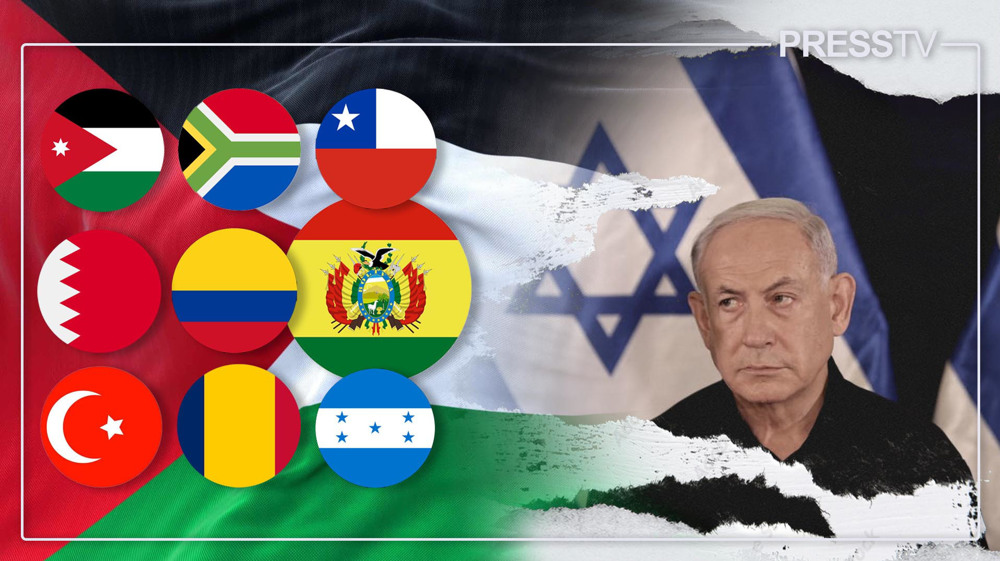
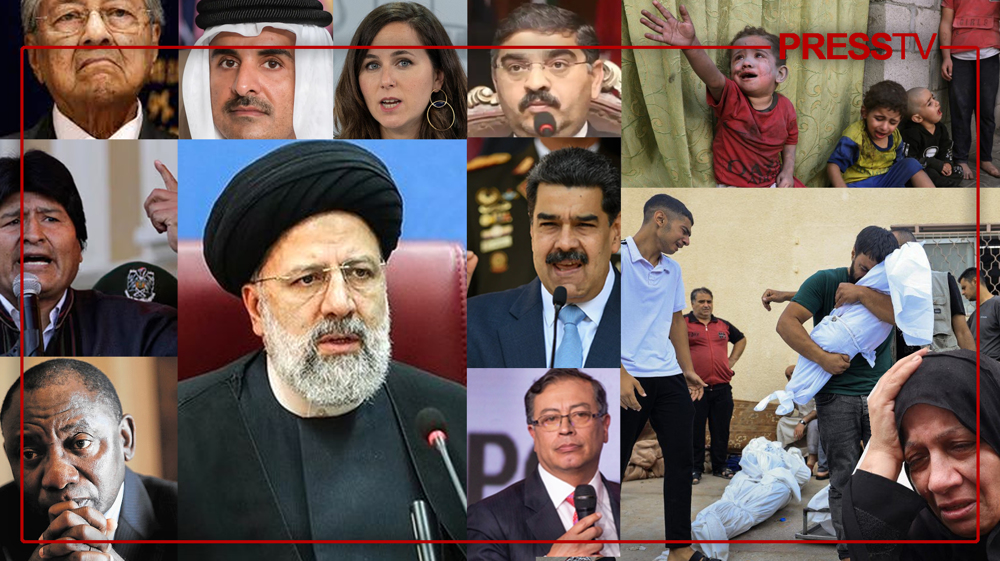
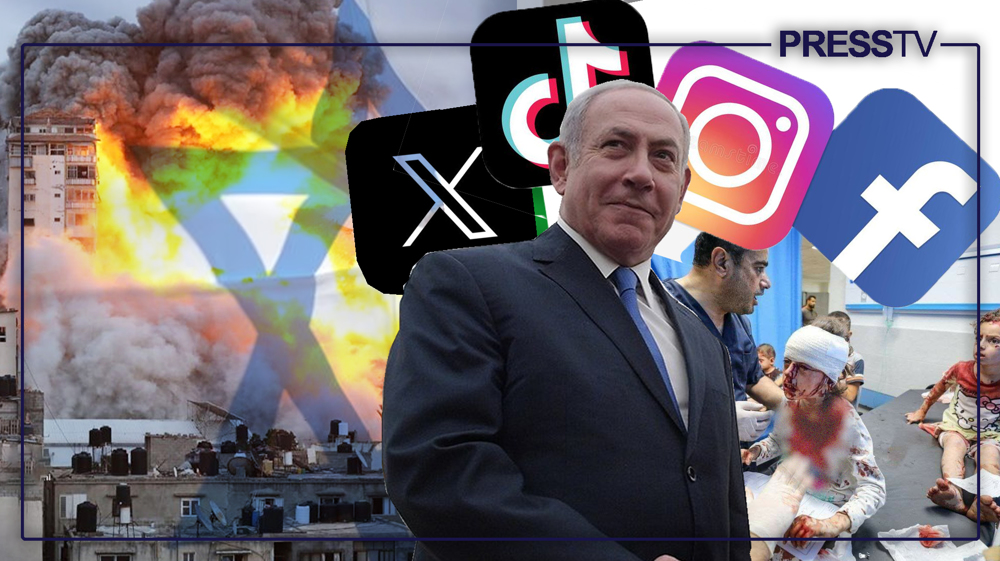
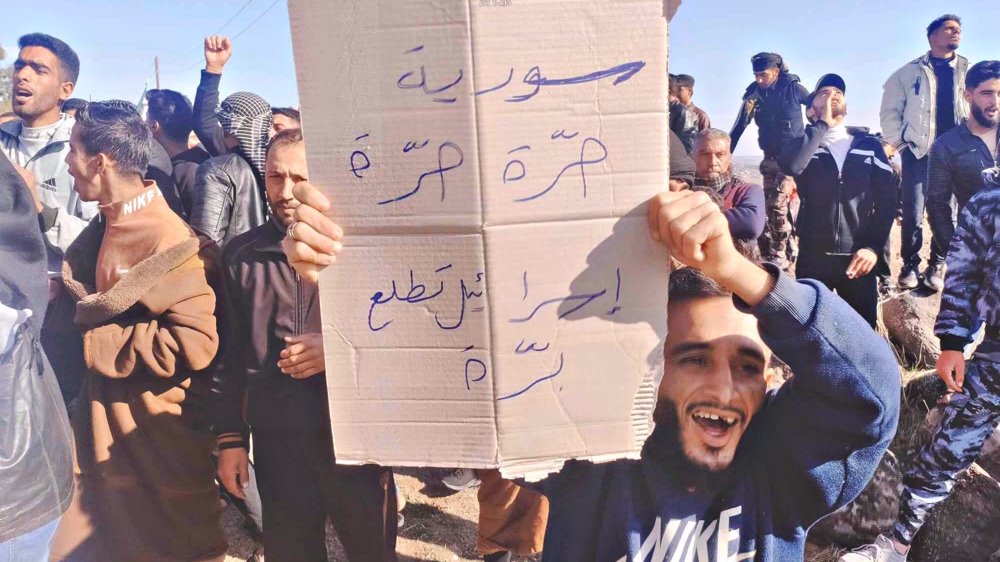
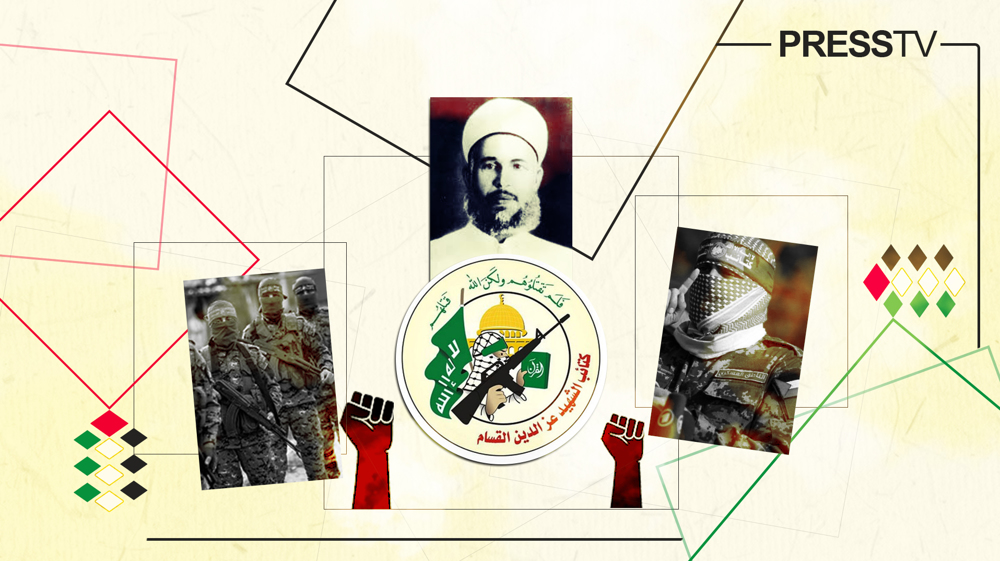
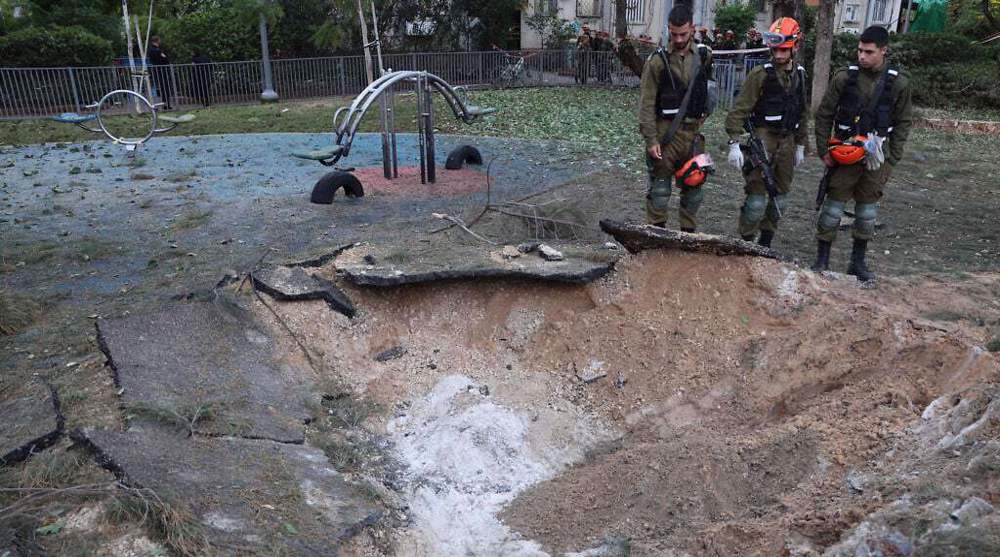



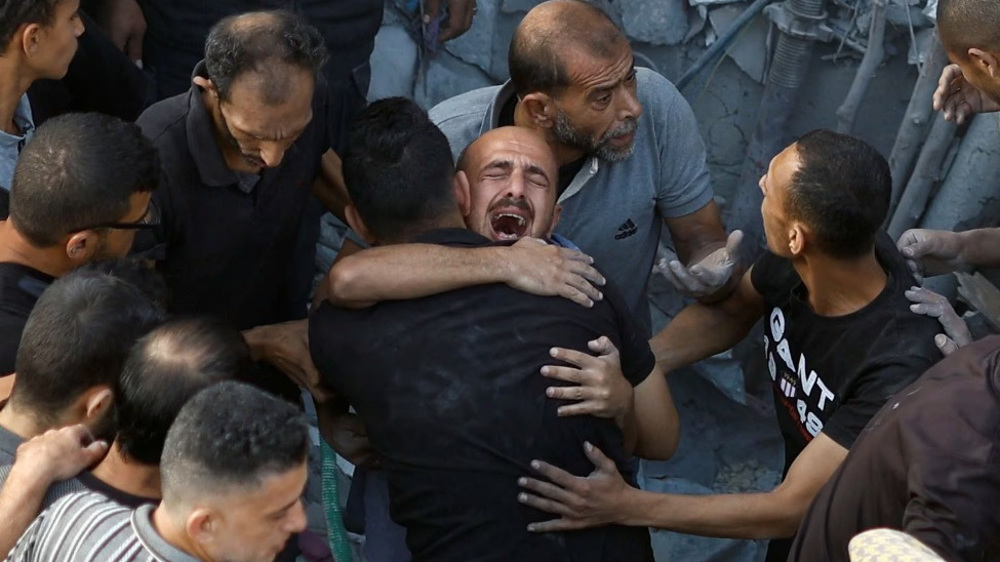
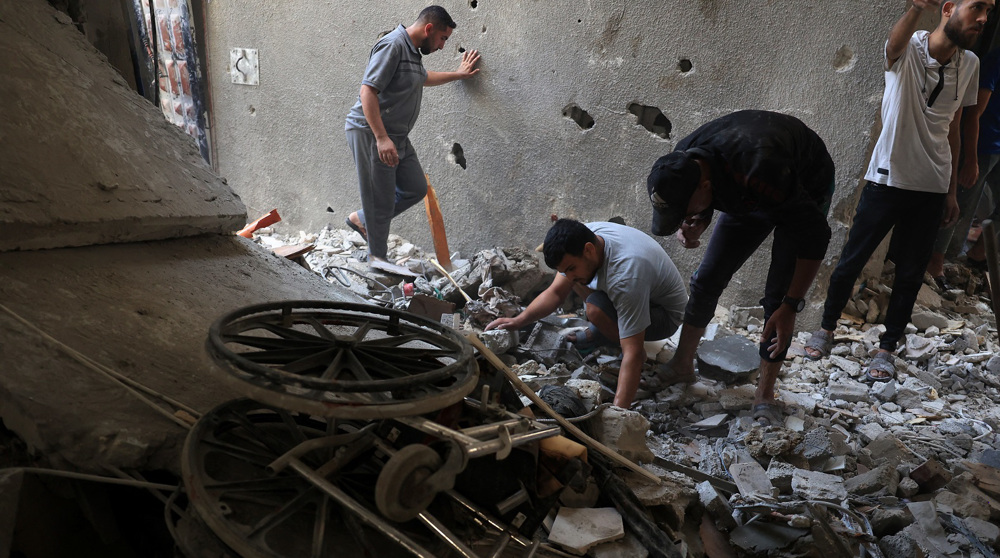
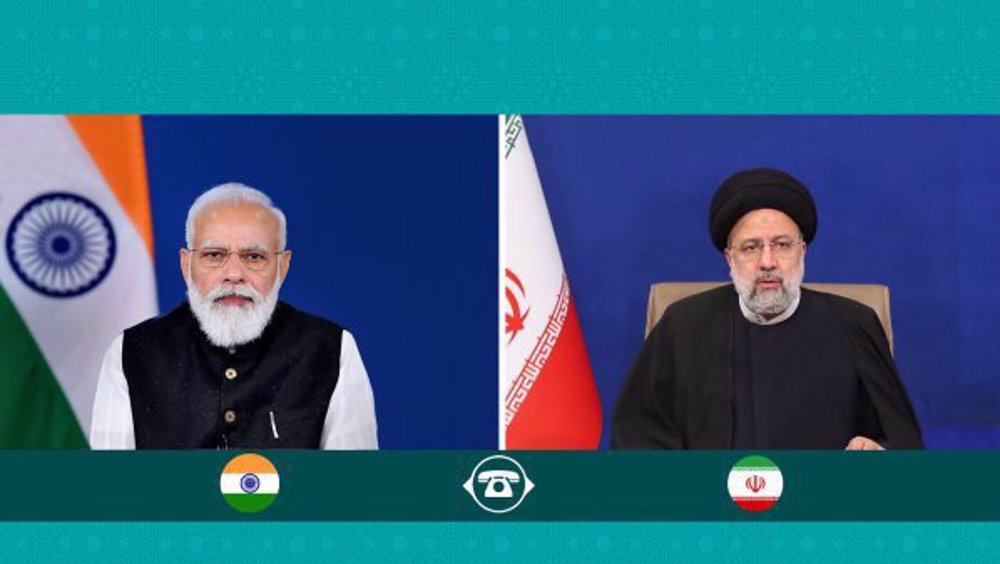
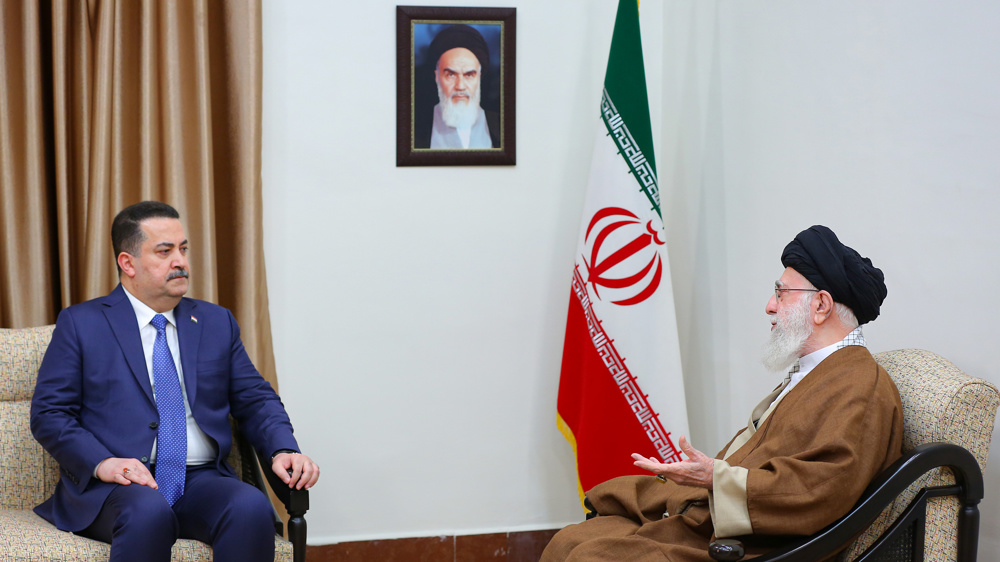
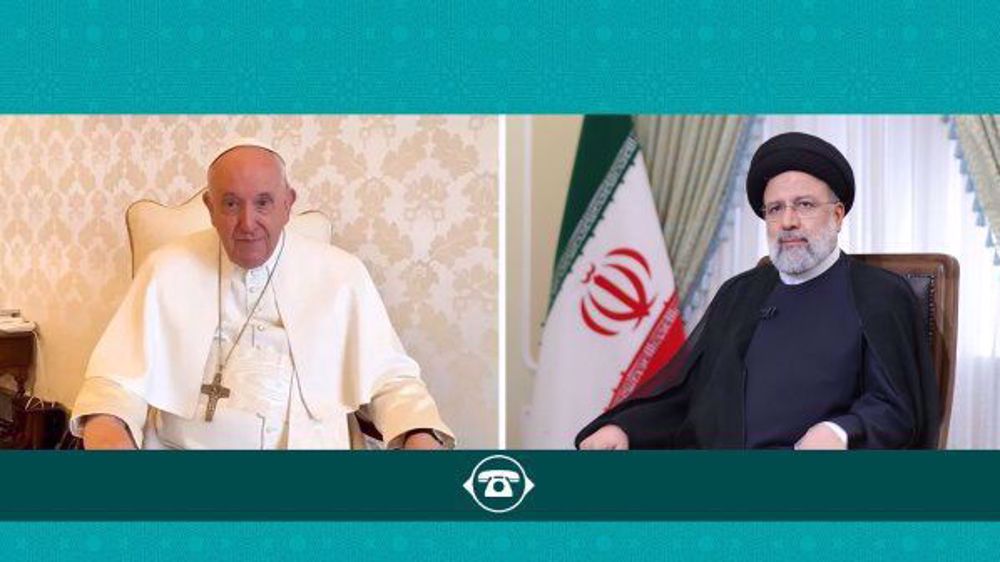

 This makes it easy to access the Press TV website
This makes it easy to access the Press TV website